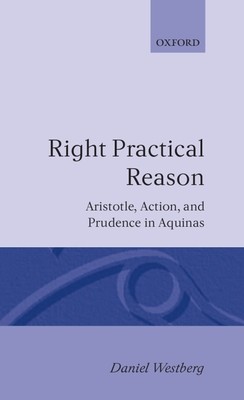
- We will send in 10–14 business days.
- Author: Daniel Westberg
- Publisher: Clarendon Press
- ISBN-10: 0198267312
- ISBN-13: 9780198267317
- Format: 14.9 x 22.4 x 2.6 cm, hardcover
- Language: English
- SAVE -10% with code: EXTRA
Reviews
Description
This book is a study of the role of intellect in human action as described by Thomas Aquinas. One of its primary aims is to compare the interpretation of Aristotle by Aquinas with the lines of interpretation offered in contemporary Aristotelian scholarship. The book seeks to clarify the problems involved in the appropriation of Aristotle's theory by a Christian theologian, including such topics as the practical syllogism and the problems of akrasia. Westberg argues that Aquinas was much closer to Aristotle than is often recognized, and he puts forward important new interpretations of the relation of intellect and will in the stages of intention, deliberation, decision, and execution. In the concluding section of the book, he shows how this new interpretation yields fruitful insights on a range of theological topics, including sin, law, love, and the moral virtues.
EXTRA 10 % discount with code: EXTRA
The promotion ends in 12d.11:56:05
The discount code is valid when purchasing from 10 €. Discounts do not stack.
- Author: Daniel Westberg
- Publisher: Clarendon Press
- ISBN-10: 0198267312
- ISBN-13: 9780198267317
- Format: 14.9 x 22.4 x 2.6 cm, hardcover
- Language: English English
This book is a study of the role of intellect in human action as described by Thomas Aquinas. One of its primary aims is to compare the interpretation of Aristotle by Aquinas with the lines of interpretation offered in contemporary Aristotelian scholarship. The book seeks to clarify the problems involved in the appropriation of Aristotle's theory by a Christian theologian, including such topics as the practical syllogism and the problems of akrasia. Westberg argues that Aquinas was much closer to Aristotle than is often recognized, and he puts forward important new interpretations of the relation of intellect and will in the stages of intention, deliberation, decision, and execution. In the concluding section of the book, he shows how this new interpretation yields fruitful insights on a range of theological topics, including sin, law, love, and the moral virtues.


Reviews